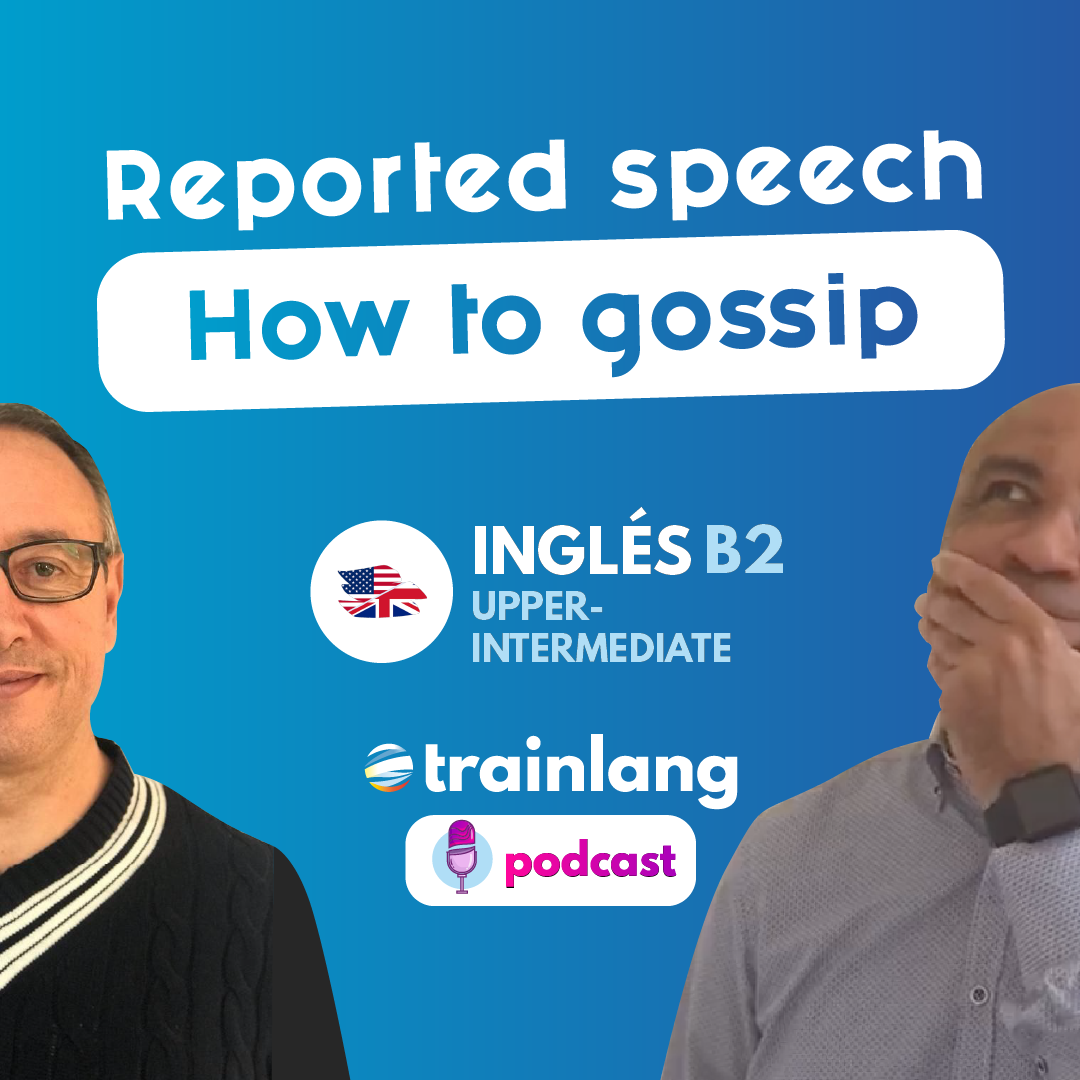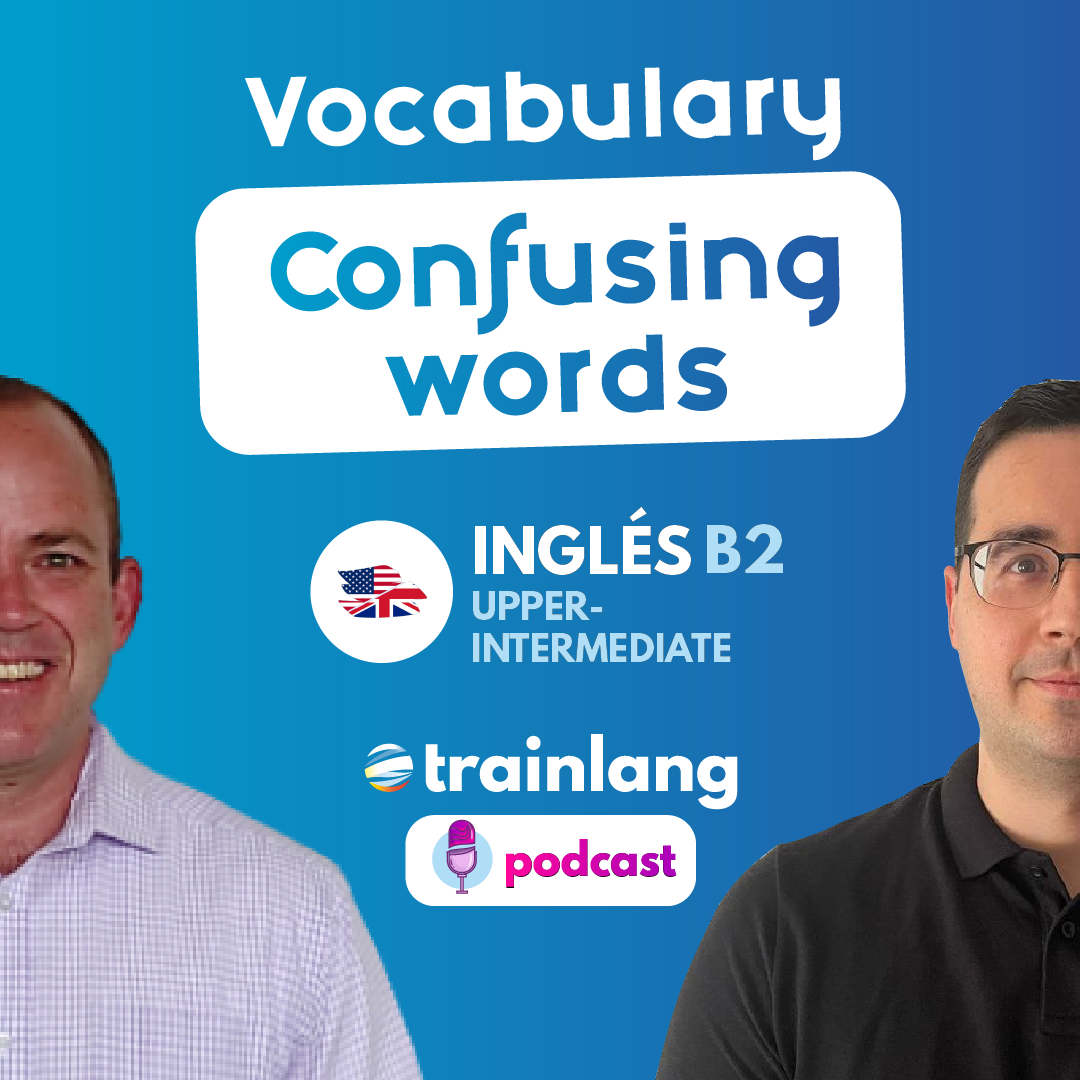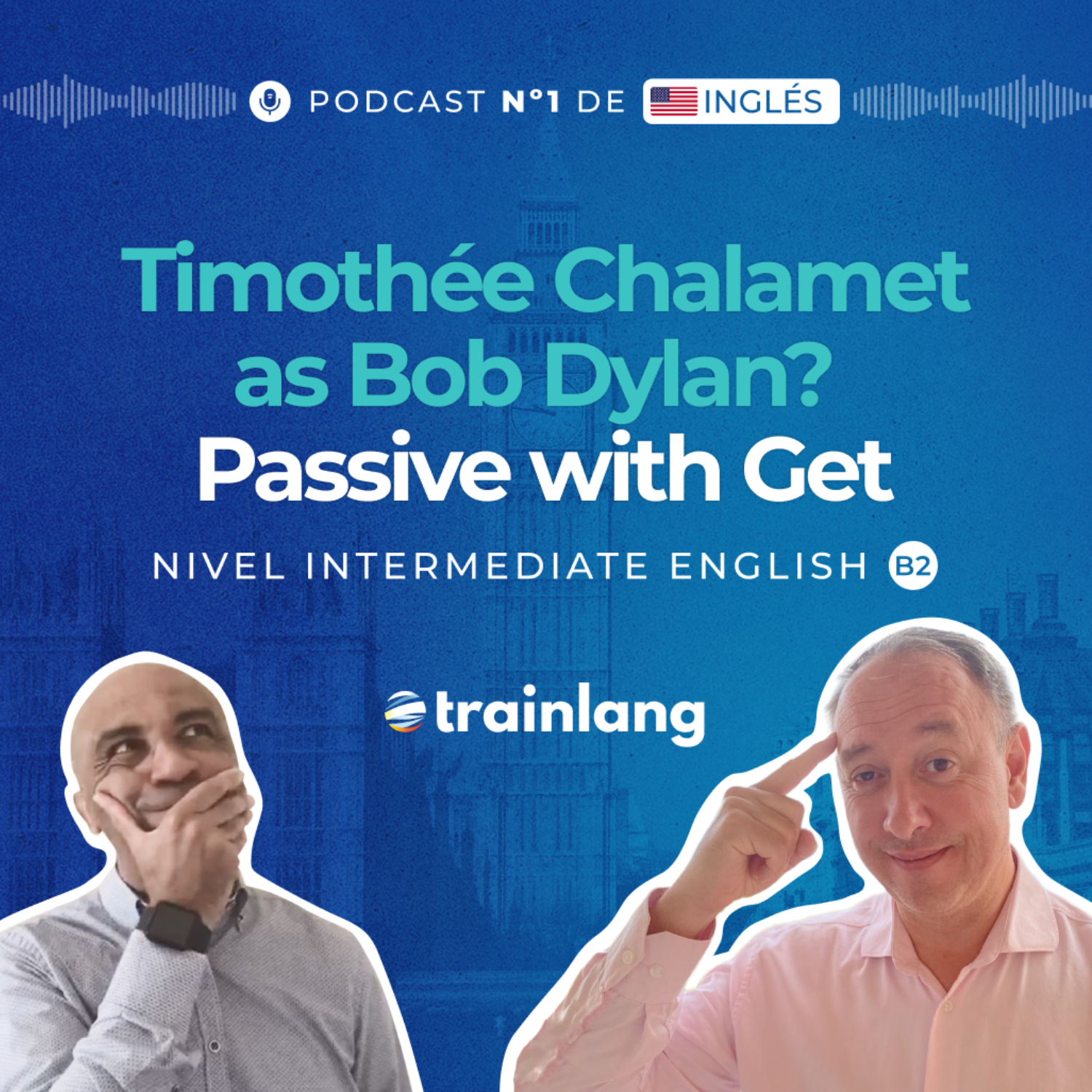Episode Transcript
[00:00:00] Speaker A: Foreign.
[00:00:12] Speaker B: Welcome back to the training podcast. I'm Johnny.
[00:00:15] Speaker A: And I'm Aline.
[00:00:17] Speaker B: Today's episode, we're going to talk about the past perfect simple and the past perfect continuous tenses.
But we are also going to make a bit more fun by talking about International Beer Day. Aline International Beer Day.
[00:00:34] Speaker A: Yes, beer lovers all around the world celebrate this day. So it's the perfect opportunity to dive into some cool vocabulary related to the beer culture and use that to practice our grammar.
[00:00:49] Speaker B: Yeah, well, although I think that for many, Aline International Beer Day is every day.
We will show you how to talk about past actions using the past perfect. The past perfect continues, all while talking about beer festivals, beer releases, and maybe even a few personal stories. I don't think so that we will share any personal story, but who knows, maybe Matthew or Stefan want to send a comment about their personal stories with drinking a beer. So anyway, and by the way, if.
[00:01:24] Speaker A: You want to learn English in a fun and interactive way, like right now with Johnny, be sure to check out for free trial class and explore our affordable courses.
If you want to improve your English and make real progress, this episode is for you. And if you want to learn with us, you can try a private class for free. We offer courses starting at €39 with live lessons, recordings and a complete compass to help you learn at your own pace.
Visit trainlung.com and choose to start learning today.
[00:02:05] Speaker B: Yeah, that's right.
Festival.
[00:02:29] Speaker A: Why not?
[00:02:33] Speaker B: Well, Aline, have you ever attended a beer festival before?
[00:02:38] Speaker A: Oh yeah, I have attended a few. The first time I went to a beer festival, I hadn't tried craft beer before.
I was used to regular lagers, but the variety at the festival was incredible.
[00:02:52] Speaker B: Yeah, I remember the first time I tried the IPA at a festival. I never tasted something so bitter before the ipa, but after a few sips, well, I started enjoying it.
[00:03:06] Speaker A: That's the beauty of these festivals though. I mean, you don't realize how many different types of beer exist until you're there, right? The festival last year was so amazing. I have tried so many new beers by the time it ended.
[00:03:23] Speaker B: Yeah, last year's festival was definitely the best one I have been to. But last month I was at a smaller festival and the beers had been so different.
So it was great. But I still think that last year's festival was the most fun.
[00:03:37] Speaker A: You know, it's funny, I had been planning to attend more beer festivals this summer, but then I got so busy with work, I haven't had much time for it.
[00:03:48] Speaker B: I get that it's the same for me. I had always wanted to go to Oktoberfest in Germany, but somehow I never made it happen.
[00:03:57] Speaker A: I know, right? We've both been saying for years that we should go. Maybe next year we will finally go.
[00:04:04] Speaker B: Absolutely. So next year let's see what happens. Maybe we take the whole team. We take Matthew, we take Stefan, all the train and family, and we go to the Oktoberfest in Germany. Oliver, you better take note of this.
We want to go to the Oktoberfest next year. Okay.
[00:04:26] Speaker A: Very good. That was a good way to start talking about something not as interesting as Oktoberfest. But let's talk about past perfect simple and past perfect continuous.
These two tenses help us talk about actions that happened before another action in the past.
They used to show the order of past events.
[00:04:49] Speaker B: That's right. So let's talk them first. First about the past perfect simple. Should we.
So we use this tense to talk about an action that was completed before another action in the past.
And the structures, as you can see if you are watching this live, it's had plus past participle.
So for example, I had finished my beer before the festival started.
So here the past perfect simple tells us that finishing that beer was completed before the festival started.
[00:05:25] Speaker A: Exactly. Let's see another example. Now, by the time we arrived at the pub, they had already served the food.
Here we use had already served to show that the food was served before our arrival. The action of serving the food was completed first.
[00:05:46] Speaker B: Yeah. And here's a fun example for our beer lovers. So you could say I had tried three different beers before. I found my favorite.
This shows that the action of trying the beers was completed before.
Maybe you discovered which one you liked the most.
[00:06:06] Speaker A: Excellent. Very good. So now let's go to the past perfect continuous.
We use this tense to talk about actions that were on ongoing in the past and were happening for some time before another action in the past.
And this time, as we see on the screen, the structure is had been verb. Ing.
Let me give an example.
I had been waiting for an hour when the beer finally arrived.
This shows that waiting was happening over a period of time. Of time. An hour before the beer arrived.
[00:06:49] Speaker B: Yeah. Well, I hope that beer wasn't warmer because.
Yeah. So another example. No.
They had been brewing beer for hours before they finally opened the brewery doors. So in this case, the brewing was an ongoing action that happened before they opened the door.
So they have been brewing and emphasizes the duration of the action.
[00:07:15] Speaker A: Very good. And we can also use past perfect Continuous to talk about something that was happening over time and was interrupted by another action. For example, we had been brewing beer all afternoon when the power went out.
Or the customers had been drinking craft beer for an hour when the live band started playing.
[00:07:40] Speaker B: Great examples that past perfect continuous emphasizes duration and shows that something was happening for a while and another before another event interrupted it. So it's perfect. You want to describe an ongoing action in the past.
[00:07:57] Speaker A: Okay, so now let's compare these two tenses because we've mentioned the past perfect simple and now as well, the past perfect continuous. Let's compare them. First of all, past perfect simple is used for completed actions that happened before another action. Completed actions before another action and is the one you use when something finished before something else started.
I had finished my beer before I went to the pub. Okay, now past perfect continuous is used to show the duration or an ongoing nature of an action before another action in the past.
[00:08:39] Speaker B: Very good. Excellent. Yeah, and we saw just an example. Like for example, when you said the customers had been drinking craft beer for an hour when the live band started playing. So something that happened before another thing started.
Very good. So we have more examples. Not for clarity. Past perfect simple. By the time I got to the festival, they had already closed the doors or the past perfect continues. We had been waiting in line for ages before the gate opened. So we have a clear difference between these two. So as you can see, both tenses describe actions in the past that happened before something else, but with a slight difference focus. Past perfect simple is about completion.
While past perfect continuous emphasizes the duration or an action that was ongoing.
[00:09:35] Speaker A: That's right. Excellent. So now let's practice using these tenses with some real life examples and see how they fit into everyday conversations.
[00:09:46] Speaker B: Fantastic. So let's put your knowledge to the test.
Perfect continues. Simple.
We had tried many different beers before the festival.
We had been trying many different beers before the festival.
Or we tried many different beers before the festival.
[00:10:36] Speaker A: Yeah. And if you're enjoying this episode, which I'm sure you are, don't forget to like and to subscribe.
[00:10:44] Speaker B: Yes. And share it with your friends who are into beer grammar or just learning English in fun ways. We've got plenty more episodes coming up to help you to improve.
[00:10:57] Speaker A: Stick with us for more grammar tips and cultural insights. We've got a lot of great topics ahead.
[00:11:04] Speaker B: Very good.
Super. Professor, Let us go a little bit to a cultural discussion. Let us talk about beer, Helene.
And let us talk about International Beer Day.
It's celebrated globally and it's A day dedicated to all things beer, from tasting new brews to celebrating beer culture.
[00:12:17] Speaker A: Indeed, it's a day to honor beer in all its forms. And it's celebrated worldwide with many cities holding beer festivals and events.
[00:12:27] Speaker B: Very good.
Sometimes you think about Germany, we spoke about the Oktoberfest. But in the UK beer festivals are a huge tradition, especially during the summer months. So last year, for example, you can. You could attend the Great British Beer Festival and yeah, that can be an amazing experience.
[00:12:47] Speaker A: Absolutely. And in the US there's also the Oktober Feast celebrations, which are all well known. But International Beer Day isn't just about tasting different beers. It's about appreciating the craft and the culture behind beer beer brewing.
[00:13:06] Speaker B: Right.
It's a day to support local companies who sell beers, learn more about beer styles, and connect with other beer lovers around the world.
[00:13:17] Speaker A: Exactly. The best part is you don't need to be at a festival to participate. You can just grab your favorite beer and enjoy it with your friends.
[00:13:26] Speaker B: Exactly. So cheers to that. So certainly it's something that, as you can see, just say, people celebrating this, these things.
Fantastic. So let us go to the answer to the question. So we asked Antes del Festival.
[00:13:51] Speaker A: And the correct answer is we had tried many different beers before the festival.
[00:13:58] Speaker B: Great job, huh?
[00:13:59] Speaker A: So that's perfect. Simple.
[00:14:01] Speaker B: Very good. We use the past perfect simple because we are talking about something that was completed before the festival.
What's something you had tried or had been trying before a major event? It could be a beer, it could be wine or could be something else. So just share your comments and if you want to post your comment now.
[00:14:36] Speaker A: Exactly. We'd love to hear your sentences in the comments.
Let's see how you're using those tenses.
[00:14:43] Speaker B: Fantastic. So, Aline, today, what have we covered? We covered the past perfect. Simple.
For completed actions before all the past events. And also we covered the past perfect. Continues. For ongoing actions before other past events.
Present perfect.
Il past perfect.
Okay, well, we will be diving into the using of intensifiers, how to use them correctly in conversations.
[00:16:22] Speaker A: Www.trainloan.com.
[00:16:56] Speaker B: Aline, thank you very much.
Thank you and friends, see you next time.
[00:17:05] Speaker A: Bye bye.
[00:17:14] Speaker B: Sam.


